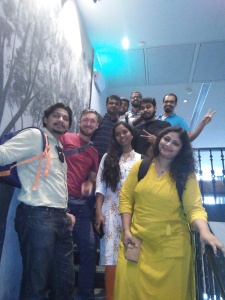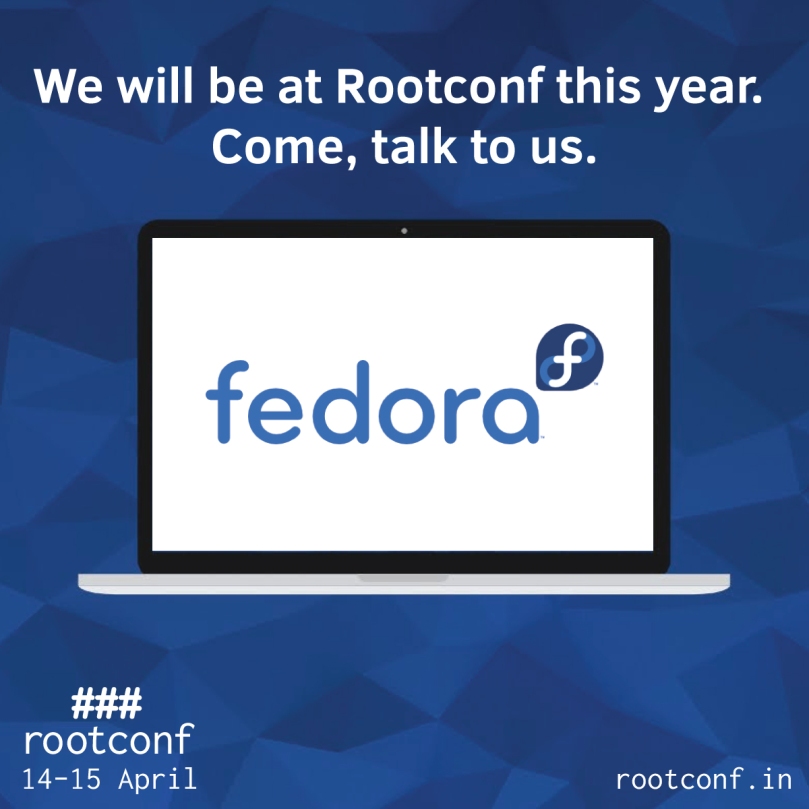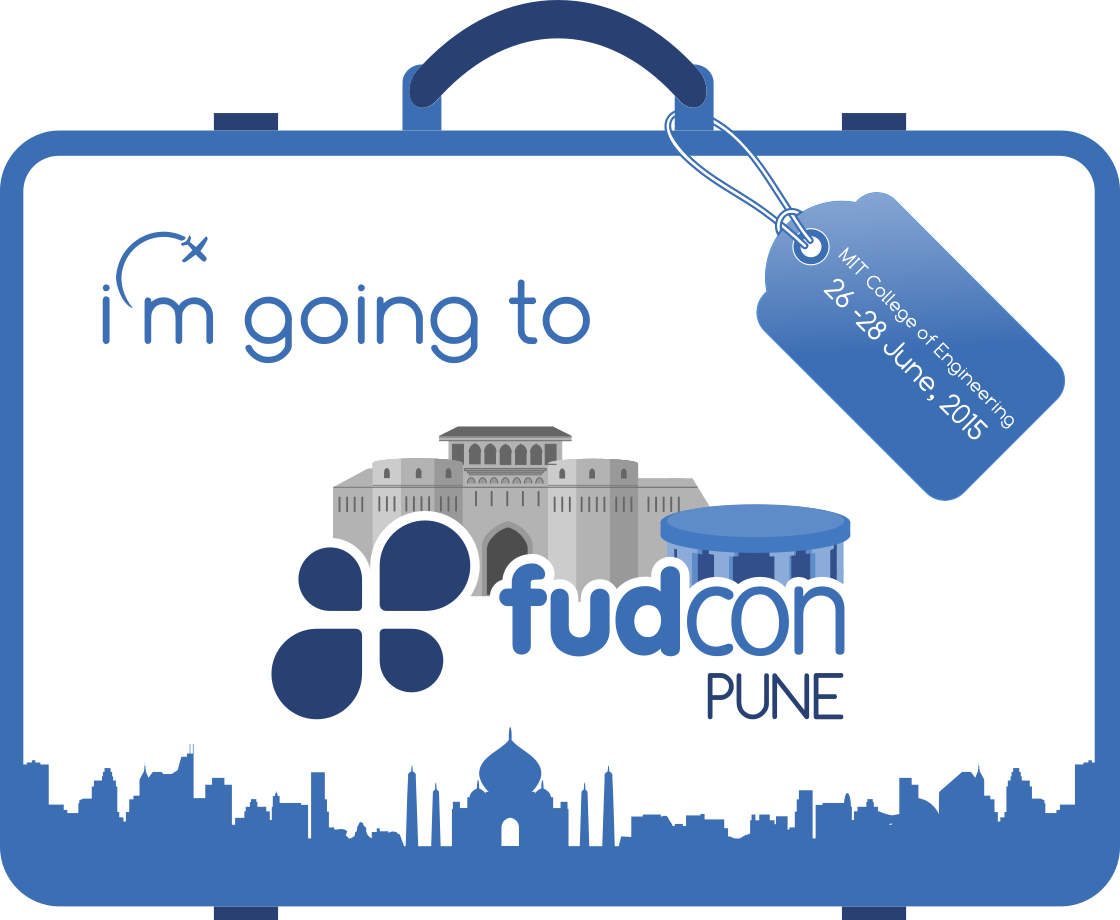Earlier this month, I attended DevConf.in 2018 conference in Bengaluru, KA, India. It was sort of culmination of a cohesive team play that began for me at DevConf.cz 2018 in Brno, CZ. I say sort of because the team is already gearing up for DevConf.in 2019. 🙂 In Brno, while conversing with Chris Ward, he asked me if I knew when DevConf.in was happening in summer and if we could announce the dates? DevConf.us had announced dates and opened their CFP. I had not a slightest clue about DevConf.in happening, let alone making an announcement. From experience of organising FUDCon, my first reaction was, in summer(ie. May)? NO! Three months is way short time for organisers to go from opening CFP to hosting an international conference. I started talking to other delegates who had come from India to see if they knew anything and finally pinged Rupali. She confirmed it was to be in Aug 2018, not May.
DevConf, Developer’s Conference, offers a platform for open source and free software developers and contributors to come together, share ideas and plan future course of development of upstream projects.
Once back from DevConf.cz, organising team started taking shape, quite dispersed, majority were new faces(to me) and a few were old friends. We quickly swung into action; Some reached out to potential venues and some began discussions about CFP process and various tracks for the conference. Few others helped to set-up infrastructure like conference website, setting up recurring status meetings along with various communication channels like mailing list and Telegram groups. It is important to note, when the team is spread across multiple cities and 1000 km away from one another, communication becomes the bedrock of your efforts; It is the strongest glue that holds the team together. Actually communication is key even if team is in the same office and on the same floor. More often we see two people sit across from each-other, but fail to connect as they fail to communicate. Better the communication, better the connection.
Soon the dates & venue was finalised, tracks were decided and CFP was announced. As the talk proposals started pouring in, track captains were selected to curate the content for each track. I became captain for the Security track and was also assigned responsibility to scout for the keynote speakers. I went through my list of usual suspects for the keynote speaker and sent out emails to them. My list includes Linus Torvalds, Greg Kroah-Hartman, Jonathan Corbet(LWN), Jon Masters, Rick Wheeler, Sarah Sharp, Kees Cook et. al. Apart from their tall stature in the community, I think they are all excellent speakers. And local community here would certainly benefit from meeting and interacting with them. There’s also a personal motive of me wanting to meet them. 😉 Similarly others had their own wish list of keynote speakers. It is a time consuming task. Not so much in terms of work, but the whole process of reaching out and confirming their availability takes long. You can not send invites to all at the same time, you’ve to do it in batches. There is always a risk of speakers not responding in time and/or many of them saying yes, which would be tricky, because you don’t want to say no to anyone. Also, at times for various reasons, speakers have preferences for a keynote slot, which adds to the complexity. In short, the sooner you start this process, the better it is.
As days progressed and attendee registrations swelled, there came usual hysteria around logistics. It includes chasing speakers to book tickets, apply for visa & invitation letters in case of international speakers, their hotel accommodation, checking arrangements at the venue, Wi-Fi and audio-visual set-up, registration process, managing on ground volunteers, etc. thousand different things crop up simultaneously. But the respective captains handled it all with grace, big kudos to them all! Meanwhile, I got occupied with preparing swag for the Fedora booth at the venue. We made Fedora stickers, pens and some sipper bottles. Sadly I couldn’t spend much time at the booth and interact with the audience. As on the first day I did a session on “Introduction to SystemTap” and on the second day, I was at the Security track which had quite an interesting lineup of talks and discussion.
- BlueBorne: Beware of Bluetooth!
- Security Compliance with OpenSCAP
- Certificate Generation & Checks
- SSH with short lived keys
- The dark side of internet of things
- Understanding Hardware Vulnerabilities


